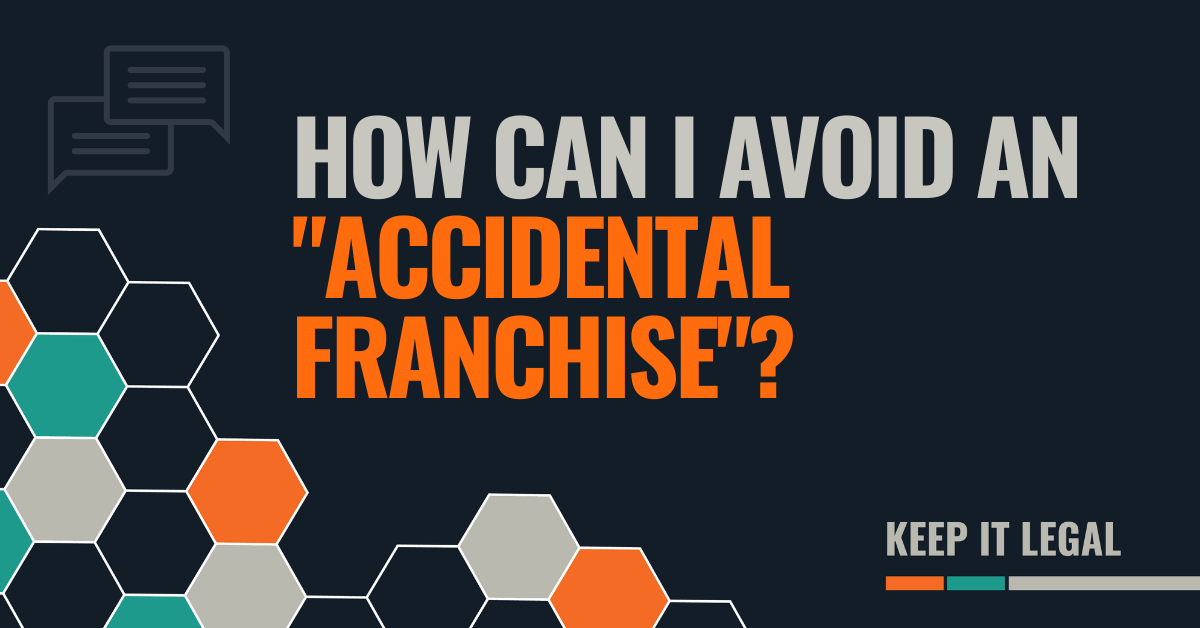One of the benefits of owning a trademark is enjoying the ability to license the mark – meaning, you can agree to let someone else use the trademark in exchange for a fee or some other type of compensation. In theory, trademark licensing should be straightforward. However, the “franchise trap” or the “accidental franchise” makes it more complicated than it may initially seem.
Franchises are highly regulated at both the state and federal level. For example, franchisors are required to make substantial disclosures of financial information, which must be audited. In California, as in many other states, the franchise must be registered and reviewed by state regulators. This is just a small sample of the legal burdens placed on franchisors.
Franchising is a perfectly good business model, but it’s a big problem if you find yourself accidentally placed in the position of being a franchisor.
Just calling a contract a “Trademark License Agreement” rather than a “Franchise Agreement” doesn’t make it so.
The Federal Trade Commission (FTC) defines a “franchise” as any continuing business arrangement that satisfies the following conditions:
- The right to use a common trademark in the operation of the business;
- The imposition of significant control, assistance, and/or support over the method of operating the business;
- The payment of a fee, including, but not limited, to initial fees, royalties, advertising fees, training fees, and fees for equipment.
The intent of the parties is not relevant to the determination of whether a business arrangement is, in fact, a franchise.
The key to determining whether or not you fall into the definition of a franchise is typically the second element, which deals with “control”. Here’s where it gets tricky. Trademark licensors have to exercise quality control over their licensees. Failure to do so can result in what’s referred to as “naked licensing“, which can lead to a loss of trademark rights.
So in order for your trademark license agreement to be valid, but not to be considered a franchise, you need to exercise some control, but not too much control.
One important question to ask is whether the license agreement allows the licensor to exercise control over the trademarks themselves (which is good) or if it also allows the licensor to exercise control over other elements of the business, such as operations. If the latter is true, then it may be an “accidental franchise”.
Let’s say your so-called Trademark License Agreement is determined to have been a franchise all along. What are the consequences? Courts can impose substantial monetary penalties, can issue an injunction preventing you from taking actions as the business owner, can freeze the assets of the franchisor, and, in some cases, can hold the business owners themselves personally liable.
Bottom line: if you want to allow someone else to use your trademark, be sure that your license agreement is properly crafted so as to avoid the “franchise trap”. The consequences of accidental franchising can be severe, and what you don’t know can hurt you.
Need assistance with your trademarks? Contact me.


